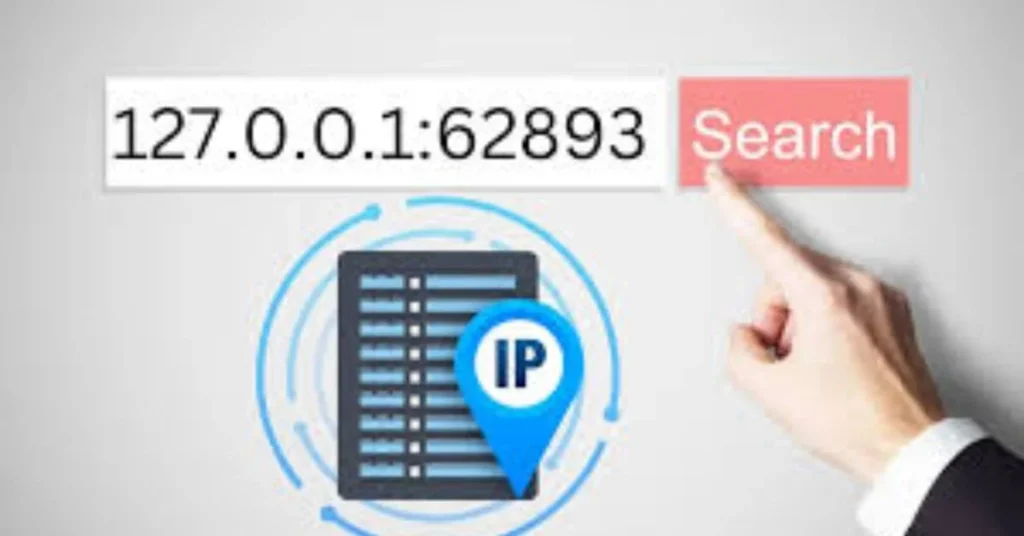In the world of networking and web development, certain IP addresses and ports play crucial roles in the functionality of local systems. One such IP address is 127.0.0.1, often referred to as “localhost.” This address is used to refer to your own computer or local machine. When you see something like 127.0.0.1:62893, it combines the IP address with a specific port, which allows different applications to communicate with one another on your local system.
In this article, we’ll break down what 127.0.0.1:62893 means, how it works, and why it’s so important in networking, particularly for web developers and system administrators.
What is 127.0.0.1?
The Role of Localhost
The IP address 127.0.0.1 is known as “localhost.” It is the loopback address, which means that it refers to the device you are currently using. When you use 127.0.0.1, you are telling your computer to connect to itself rather than an external server. This is essential for testing and debugging network services without needing access to the internet.
Must read How to Start an Event Planning Business: A Complete Guide
Why 127.0.0.1 is Special
In every computer system, the 127.0.0.1 address is reserved for the local machine. This address is part of a range of IP addresses (127.0.0.0 to 127.255.255.255) reserved by the Internet Assigned Numbers Authority (IANA) for loopback functionality. It ensures that any communication intended for this address stays within the local system.
What is Port 62893?
Understanding Ports in Networking
A port is a virtual point where network connections start and end. When you see 127.0.0.1:62893, 62893 represents the port number. Ports allow multiple services or applications to run on the same IP address without interfering with each other.
For example, if you’re running a web server on your local machine, it might use port 80 for HTTP traffic or port 443 for HTTPS traffic. However, when testing or running other applications, different port numbers, like 62893, are used to keep the processes separate.

Why Use Port 62893?
Port 62893 is typically an arbitrary number assigned by the system for temporary use, particularly in web development or local testing. You might encounter this specific port during development when you’re running local servers or testing APIs.
How Used in Web Development
Local Development Environments
Web developers frequently use (or other port numbers) to run and test applications locally. When you run a web server or application on your local machine, it binds to the 127.0.0.1 IP address and opens a specific port. This allows you to access the application via a web browser or another tool without deploying it to an external server.
For example, if you’re building a website using a framework like Node.js, Django, or Flask, you might start your development server, and it will assign an available port like 62893 to your project.
Testing and Debugging
Using it allows developers to test their applications in a safe environment without affecting live systems or needing an active internet connection. You can test your app, make changes, and troubleshoot issues on your local machine before deploying it to a live server.
The Importance of Networking
Isolation from the Internet
One of the key benefits of using is that it isolates your testing environment from the internet. This prevents unwanted users from accessing your development server and ensures that any bugs or errors in the application won’t affect live systems.
Cross-Platform Compatibility
The 127.0.0.1 IP address and port system works the same way on most operating systems, including Windows, macOS, and Linux. This ensures that developers working in different environments can use the same address and port structure for testing, making collaboration and troubleshooting easier.
Security in Testing
By using 127.0.0.1:62893, developers and administrators can avoid exposing their projects to the public while testing sensitive features or code. Since all traffic is kept local, there’s no risk of external threats during the testing phase.

How to Use Practice
Step 1: Running a Local Server
To use 127.0.0.1:62893, you first need to run a local server. This can be done using a variety of development environments or frameworks like Python’s Flask or Node.js. Once you start your server, it will assign a port number, like 62893, which you can access through your browser by typing in the address bar.
Step 2: Accessing the Application
Once the server is running, you can access the application by navigating to 127.0.0.1:62893 in your web browser. This will open your locally hosted website or service, allowing you to interact with it as though it were hosted on a live server.
Step 3: Debugging and Monitoring
Using allows you to monitor your server’s performance, debug errors, and make adjustments to your code or settings. Because everything is running locally, changes can be implemented and tested quickly.
Common Issues
Port Conflicts
Sometimes, if another application is already using port 62893, you may run into a conflict. In such cases, you can either stop the conflicting application or assign a different port number for your local server. This ensures that each service on 127.0.0.1 operates on its unique port without interference.
Firewall and Security Settings
Some firewall or antivirus software might block access to certain ports, including 62893. If you’re unable to access your local server, you may need to adjust your firewall settings to allow communication on the specified port.
Conclusion: The Significance of Web Development
In conclusion, 127.0.0.1:62893 plays a crucial role in local networking, particularly for web development and testing purposes. By using 127.0.0.1, you can create a safe and isolated environment for building and troubleshooting applications without exposing them to the internet. The port number, such as 62893, ensures that multiple applications can run simultaneously on the same machine without conflicts.
Whether you’re a developer, a system administrator, or simply interested in how local networking works, understanding the use of 127.0.0.1:62893 is essential. It allows for efficient testing, enhances security, and makes web development more accessible. Click here for more information.

What is 127.0.0.1:62893 used for?
It is commonly used in web development as a localhost address combined with a port number, allowing developers to run and test applications on their own computer without connecting to the internet.
Why is 127.0.0.1 called localhost?
127.0.0.1 is referred to as localhost because it is a loopback address that always points to the device you are using, ensuring that any network requests stay within your local machine.
What does the port number 62893 mean?
Port 62893 is an arbitrary number assigned by the system to allow a specific application to communicate on the 127.0.0.1 IP address. Ports like 62893 ensure that multiple services can run on the same IP without conflicts.
Can I change the port number from 62893 to something else?
Yes, you can change the port number from 62893 to any available port on your local machine. This can be done in your server configuration settings if 62893 is already in use by another application.
Is it safe to use 127.0.0.1:62893?
Yes, it is safe to use for local development and testing purposes. Since the connection is limited to your local machine, there’s no risk of external threats during testing.
